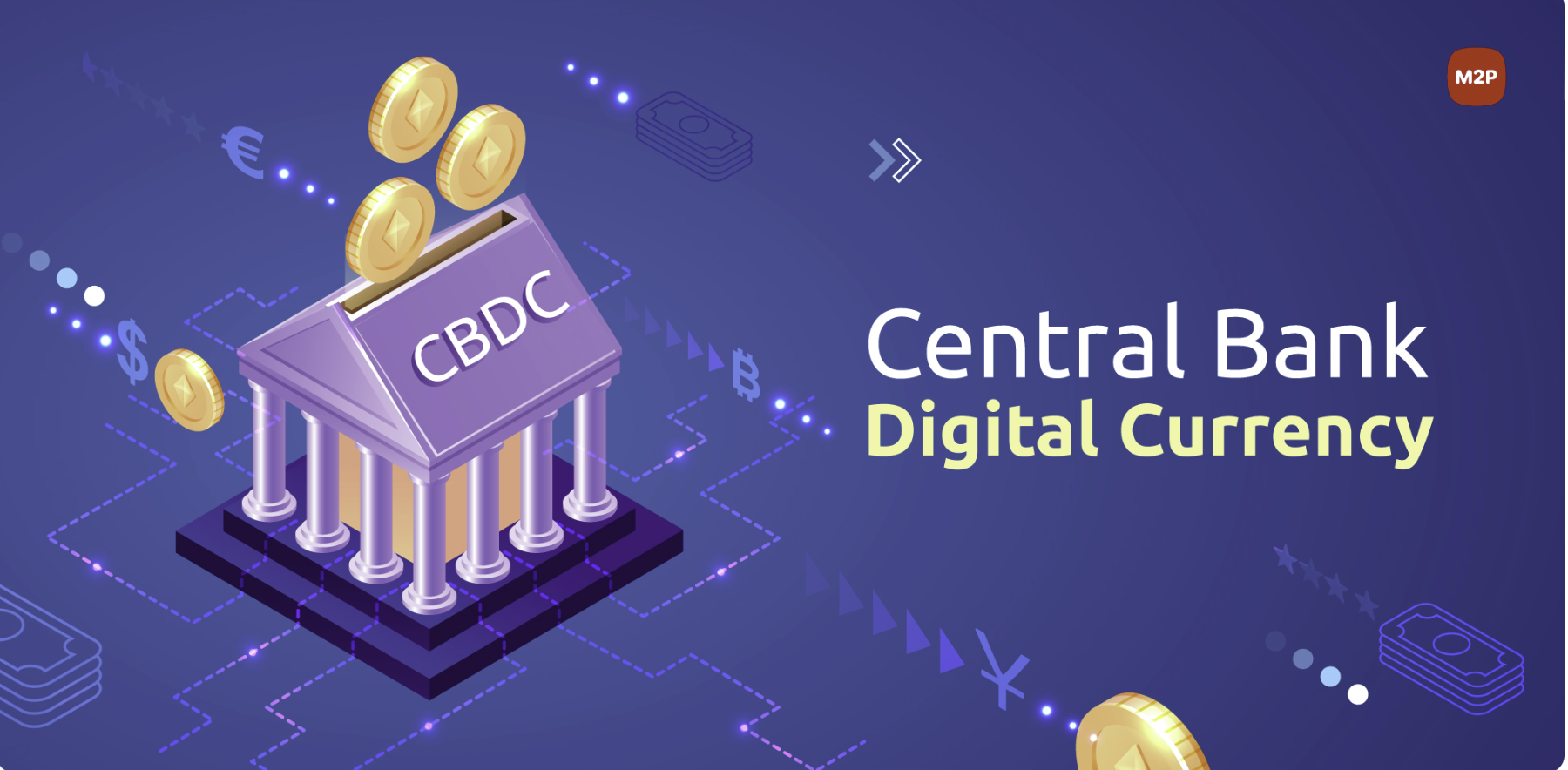Part 1- Innovative Economics: Why Central Banking Digital Currency Should Be Opposed
I recently took an economic course and the topic of digital currency was brought up. At first I was confused, isn’t this just like ApplePay? But no, it is a system of economy held within the confines of technology. A new twist to fiat currency that correlates to the new strides society has made towards advancement. Immediately the first thing that came to mind was ease. Wouldn’t this system simply perpetuate the inertia so prevalent in people today? But I decided to get some more information and found that digital currency may not be as wonderful as portrayed.
From M2P Fintech
Though the Central Banking Digital Currency is a monetary opinion with plenty of respective uses, it’s not a competent choice for the betterment of American society. With easy international transactions and quick help for crises it is believed that digital currency would be mutually beneficial for the people and the government but in reality apps and other digital structures have been created to solve these very problems (ie. Western Union, WorldRemit, Venmo, and PayPal) and CBDC has a deluge of limitations. Specifically, implementing CBDC would strip the people of the liberty and privacy granted by the 4th and 14th Amendments, particularly by having close monitoring of every financial detail.
Enforcing CBDC could help lessen the amount of small illegal actions, such as buying alcohol while underage, and might help with composing the CPI. However, on a larger scale the addition of CBDC has the potential to become a massive security threat. As what happened with North Korea and Russia, there is an increased chance of clandestine money transactions between nations, which has the probability of specifically targeting the U.S. as the dollar is used in 88% of foreign exchange (China Creates Its Own Digital Currency, a First for Major Economy). Introducing CBDC globally would inadvertently grant the United States the power to freeze foreign systems- something uncommendable and unreasonable- and there are still more issues that could appear with digital legal tender currency. In younger, developing countries CBDC would provide an opportunity for a social economic system without undergoing the complex process of establishing a safe central bank. It would be a smart idea to consider CBDC for underserved countries, but the United States and the pre-existing monetary systems it has constructed are strong enough without this additional complication.
From McKinsey
CBDC would halt counterfeiting and make fraud more difficult for miscellaneous purse snatchers, yet it gives complete control to the central bank. Though highly illegal, money could be redacted or modified however it seems fit, such as altering expiration dates. This gives the general public an inherent sense of fear and suspicion that would be extremely difficult to

